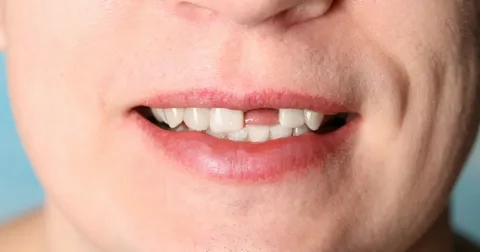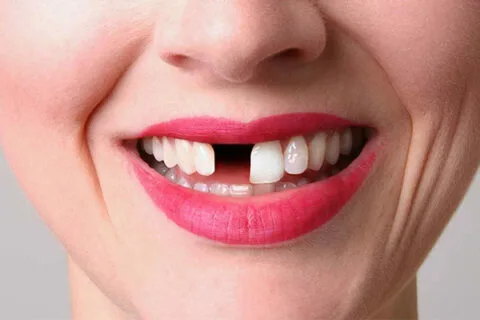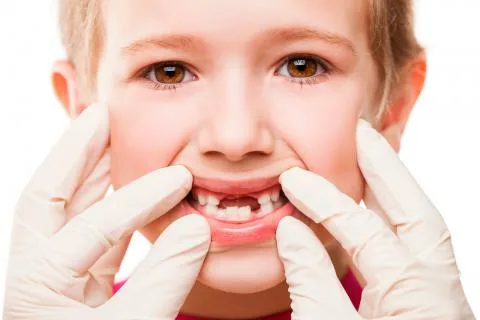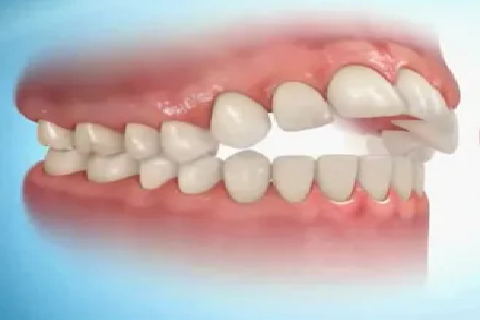TREATMENTS
Missing Teeth Treatment in Lahore
Missing Teeth
Missing teeth can significantly affect oral function, making it challenging to bite, chew, and speak properly. Individuals often seek dental solutions to restore these functions.. Missing teeth can impact the aesthetics of the smile, facial structure, and overall oral function. Common consequences include difficulty chewing, speech challenges, and potential shifts in adjacent teeth. Treatment options for missing teeth include dental implants, bridges, dentures, or other restorative procedures, depending on the individual’s dental health and preferences.

- Functional Impairment
- Aesthetic Concerns
- Speech Difficulties
- Preventing Tooth Migration
- Preserving Bone Health
- Improving Oral Health
- List Item #1
- List Item #2
- List Item #3
Types of Missing Teeth

Single Tooth Loss
This involves the absence of a single tooth anywhere within the dental arch. The most common scenario is the loss of a single tooth due to decay, trauma, or other factors

Multiple Teeth Loss
Multiple teeth missing in a specific area, either on one side (unilateral) or both sides (bilateral) of the dental arch. This can occur due to various reasons, such as advanced gum disease or trauma.

Anterior Tooth Loss
Anterior teeth refer to the front teeth, including incisors and canines. Missing anterior teeth can impact aesthetics significantly, and replacement options often prioritize cosmetic considerations.

Posterior Tooth Loss
Posterior teeth include premolars and molars, located toward the back of the mouth. Missing posterior teeth can affect chewing efficiency, and replacement options focus on restoring functional aspects.
CAUSES OF MISSING TEETH
Causes of missing teeth involves preventive measures, early intervention, and timely dental treatment. Regular dental check-ups, good oral hygiene practices, and prompt treatment of dental issues are essential in preventing tooth loss. Untreated cavities can lead to severe tooth decay, eventually requiring extraction if the damage is extensive. Advanced stages of gum disease, such as periodontitis, can lead to tooth loss as the supporting structures of the teeth are compromised.
Poor Oral Hygiene
Inadequate oral hygiene practices, including infrequent brushing and flossing.
Smoking and Tobacco Use
Smoking and tobacco use are associated with an increased risk of gum disease, which can contribute to tooth loss.
Systemic Health Issues
Certain systemic health conditions, such as diabetes or autoimmune diseases, may affect oral health and contribute to tooth loss.
Age-Related Factors
As individuals age, they may be more susceptible to conditions such as gum disease and tooth decay, contributing to tooth loss.
Missing teeth
Symptoms of Missing Teeth
- Difficulty Chewing
- Speech Changes
- Shifting of Adjacent Teeth
- Changes in Bite Alignment
- Jaw Pain or Discomfort
- Aesthetic Concerns
How To Take Care Missing Teeth
Taking care of your oral health, especially when you have missing teeth, is important to prevent complications and maintain overall well-being. Here are some tips on how to care for missing teeth:
Floss Regularly: Floss between your remaining natural teeth and around dental appliances to remove plaque and prevent gum disease. If you have dental bridges or implants, use floss threaders or interdental brushes for effective cleaning.
Use an Antiseptic Mouthwash: Rinse your mouth with an antiseptic or fluoride mouthwash to help control bacteria and maintain oral hygiene. Consult your dentist for recommendations based on your specific needs.
Visit Your Dentist Regularly: Schedule regular dental check-ups, even if you have missing teeth. Your dentist can monitor the health of your remaining teeth, assess your gum health, and address any concerns promptly.
Consider Dental Appliances If you have missing teeth, your dentist may recommend dental appliances such as bridges, dentures, or implants to restore function and aesthetics. Follow your dentist’s instructions for care and maintenance of these appliances.
FAQs
Common reasons for missing teeth include tooth decay, gum disease, trauma or injury, congenital absence (not having certain teeth from birth), and sometimes the removal of teeth due to orthodontic or surgical reasons.
Missing teeth can lead to various oral health issues, such as difficulty chewing, changes in bite alignment, jawbone loss, speech problems, and a potential impact on self-esteem and confidence.
Options for replacing missing teeth include dental implants, bridges, dentures, and implant-supported dentures. The choice depends on factors like the number of missing teeth, oral health, budget, and individual preferences.
Missing teeth can lead to adjacent teeth shifting into the empty space, causing misalignment and bite problems.
Options for replacing a single missing tooth include dental implants, dental bridges, or removable partial dentures.
Dental bridges are prosthetic devices that bridge the gap created by missing teeth. They consist of artificial teeth anchored to adjacent natural teeth or dental implants.
